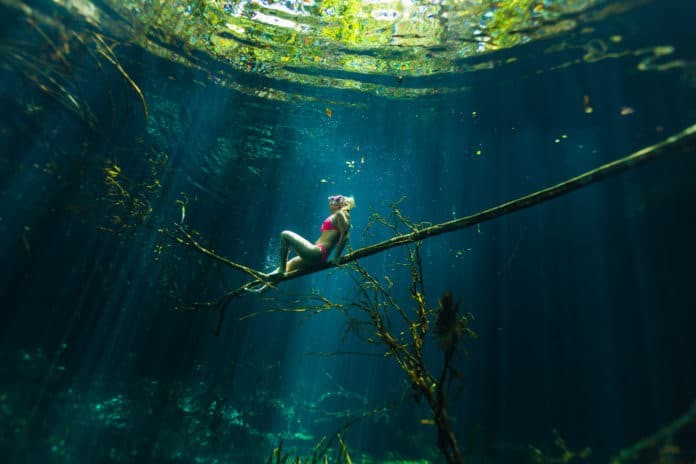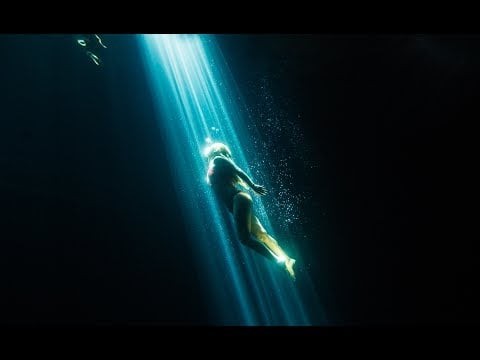Freediving means many things to the many different people who practice it. There are those for whom it is calming, meditative and spiritual. There are others who fall in love and dedicate their lives to becoming the most successful apnea athletes they can be. Marine biologists who learn to dive without equipment so they might get closer to the animals they study. And for many, the path to breath-hold diving is an extension of snorkeling or scuba experiences.
Quite often, people begin their formal training with a sense of homecoming, of comfort and familiarity and freedom, moving under the water on a lungful of air. Regardless of which way you enter or which route you want to follow, freediving has much to offer and PADI wants to help you explore what that could mean for you.
Just ask Alison Teal.
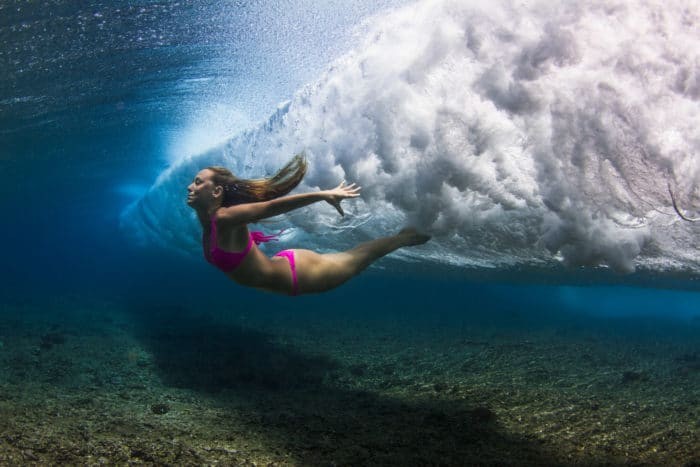
Alison is a world traveler, an explorer, a conservationist and a lifelong learner. She’s based in Hawaii, but from a young age her travels have taken her all over the globe– on snow skis and surfboards, on paddleboards and rafts, and occasionally straight up a rock face at the end of a rope! They have even taken her on tv, as a survivalist on the Discovery Channel series Naked and Afraid. In 2015, Time Magazine dubbed her the Female Indiana Jones. A remarkable photo of one of those adventures — Alison freediving with manta rays — went viral, and it caught the attention of PADI, who reached out to invite her to formally train with them.
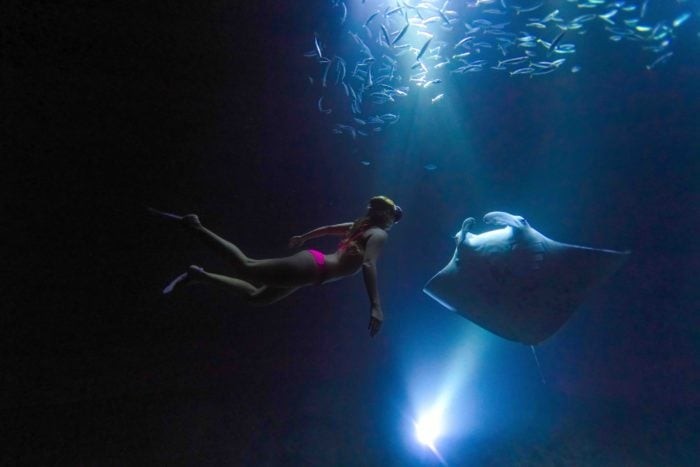
At home in the water since childhood and a trained scuba diver to boot, Alison already had a good grasp of the basics but was eager to find out what PADI could teach her about breath-hold diving. What she learned opened her up to a whole new set of adventure opportunities and taught her things about her own body and its limitations (or lack thereof) that havehelped her become a better freediver, a better surfer, and a better advocate for the world’s oceans.
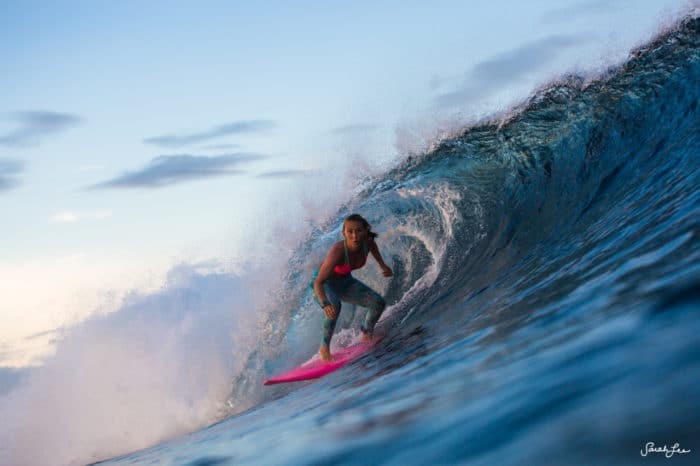
It was the potential benefit to her surfing that initially drew her in. Alison chases big waves, and comprehensive safety training combined with increased confidence in her abilities could help her keep herself safe when she got tumbled. Longer breath holds could enable her to prolong her bottom time and extend magical encounters with dolphins and manta rays. She was getting more and more passionate about ocean causes at this time, and PADI Freediving training was a great way to get totally immersed.
Alison set up her training through a shop in her hometown of Kona, Jack’s Diving Locker, and before she was done her instructor Nathan had her dropping fifty feet comfortably to slip under lava arches and shoot to the surface on the other side. She also learned how to rescue a distressed diver, and how to avoid becoming one herself. PADI’s user-friendly program balances bookwork with a hands-on approach to provide visual and experiential learning.
These tools helped Alison acquire, as she put it, “another jewel in my treasure chest for exploring the world!”
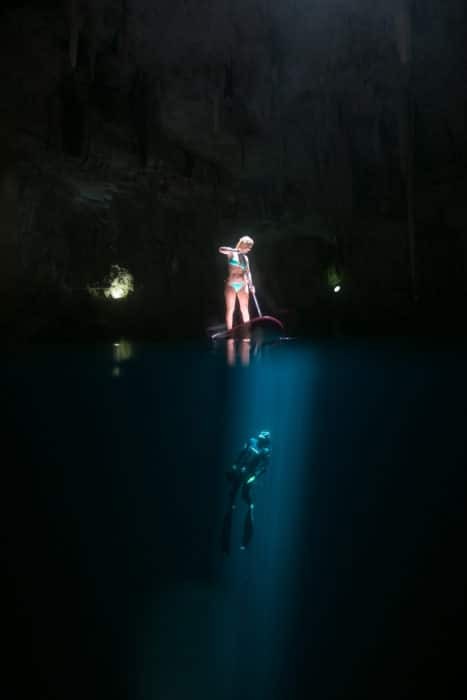
Rather than an athlete striving to be the best in a particular discipline, Alison thinks of herself as an athlete who uses her skills to enjoy the world. Freediving enables her to
“experience the feeling of being one with the ocean…There’s something about just being you and the water. It’s an incredible facilitator of learning to trust yourself and listen to your body.”
In the safe environment of PADI’s formal training structure, Alison learned what to expect, and how far she could push her own limits.
“You get to know your body so well, what you think you can’t do you CAN. I think the average person sees a freediver and thinks, ‘I can’t do that!'”.
With PADI training though:
“Without even thinking about it, you’re holding your breath longer and longer. It’s really quite shocking!”
She credits PADI’s inclusive, low-pressure approach to making the training accessible to everybody, and the incorporation of expertise from freedivers around the world for making it so effective.
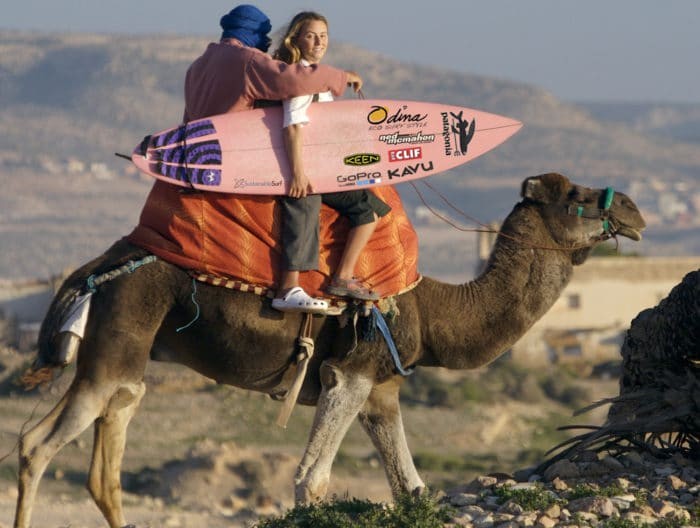
Alison was scuba certified in her early twenties and used that as a tool to explore underwater caverns and swim with sharks in Fiji — experiences where you might miss out if you had to surface for a breath. But at the risk of stating the obvious, freediving appeals precisely because it is so free. As minimalist as surfing, you can just grab your mask and fins and go. That makes it much easier to take advantage of remote dive spots that you might only be able to reach by hiking overland, for instance.
“You don’t have to worry about whether they have tanks,” Alison says, and “you don’t have to be a pro freediver with pro freediving gear to go freediving.” She has found herself naturally wanting to dive deeper and deeper, no to prove anything, but just to enjoy the journey…and because that’s just the sort of thing you do if you’re going to be an Indiana Jones.
Her current focus is channeling her personal enjoyment into a broader platform to inspire other people to fall in love with the ocean.
“I think we’re meant to be in the ocean, playing in it, loving it. If the ocean dies, we die. The more I fall in love with it, the more I want to protect it.”
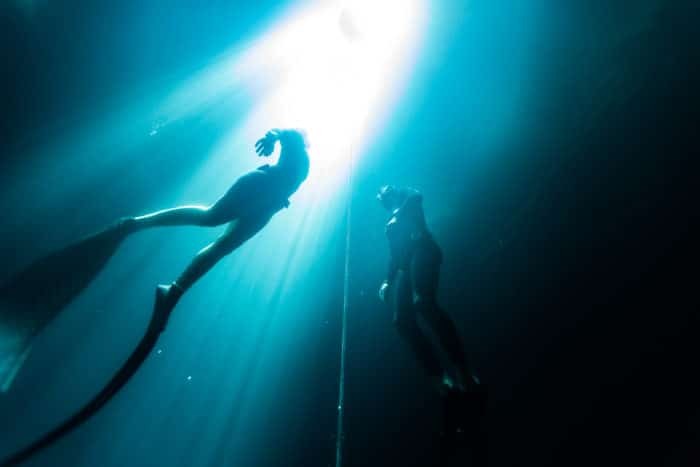
Next up, Alison’s working on a project in the cenotes of the Yucatan — a film project meant to inspire people to defend the world’s fresh water. It makes up only about 2.5% of all the water on the planet and we all depend on it for survival. She considers breath-hold diving to be a great vehicle for inspiring others to love the water, as it “has a certain beauty to it that people can connect with.”
On why she trusts PADI to formally train her in an activity she’s been practicing most of her life, Alison cited their warm, friendly attitude. They meet you where you are and helps you get just as far as you want to go, without pressure.
“I’m from Hawaii: I believe in ohanas. I want to be part of an ohana, and PADI really seems like it’s’ trying to create that with planning the vacations and organizing and training people.”
PADI has worked hard to create a culture that reflects their belief that everyone belongs in the water, and is constantly striving to improve on their methods. So whether you’re interested in getting closer to nature, finding your zen, or pushing your limits, there’s a home for you with PADI.
And with adventurers like Alison Teal as part of your ohana, you’re in great company.
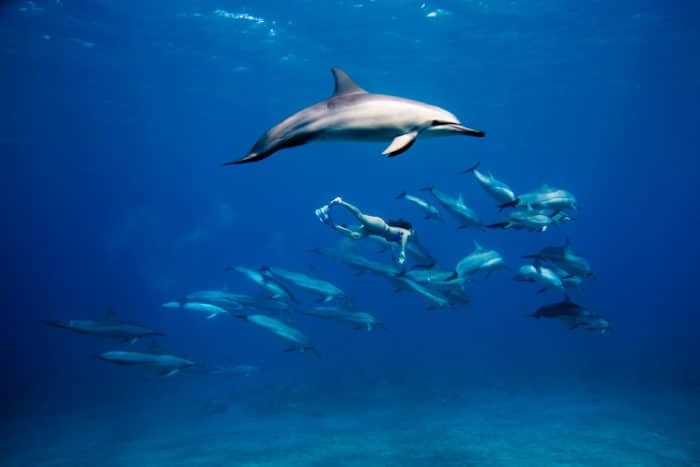
Photos courtesy of Alison Teal and Sarah Lee
You can learn more about PADI Freediver at https://www.padi.com/padi-courses/become-padi-freediver
This is a sponsored post – for more information please see our disclosure policy.

